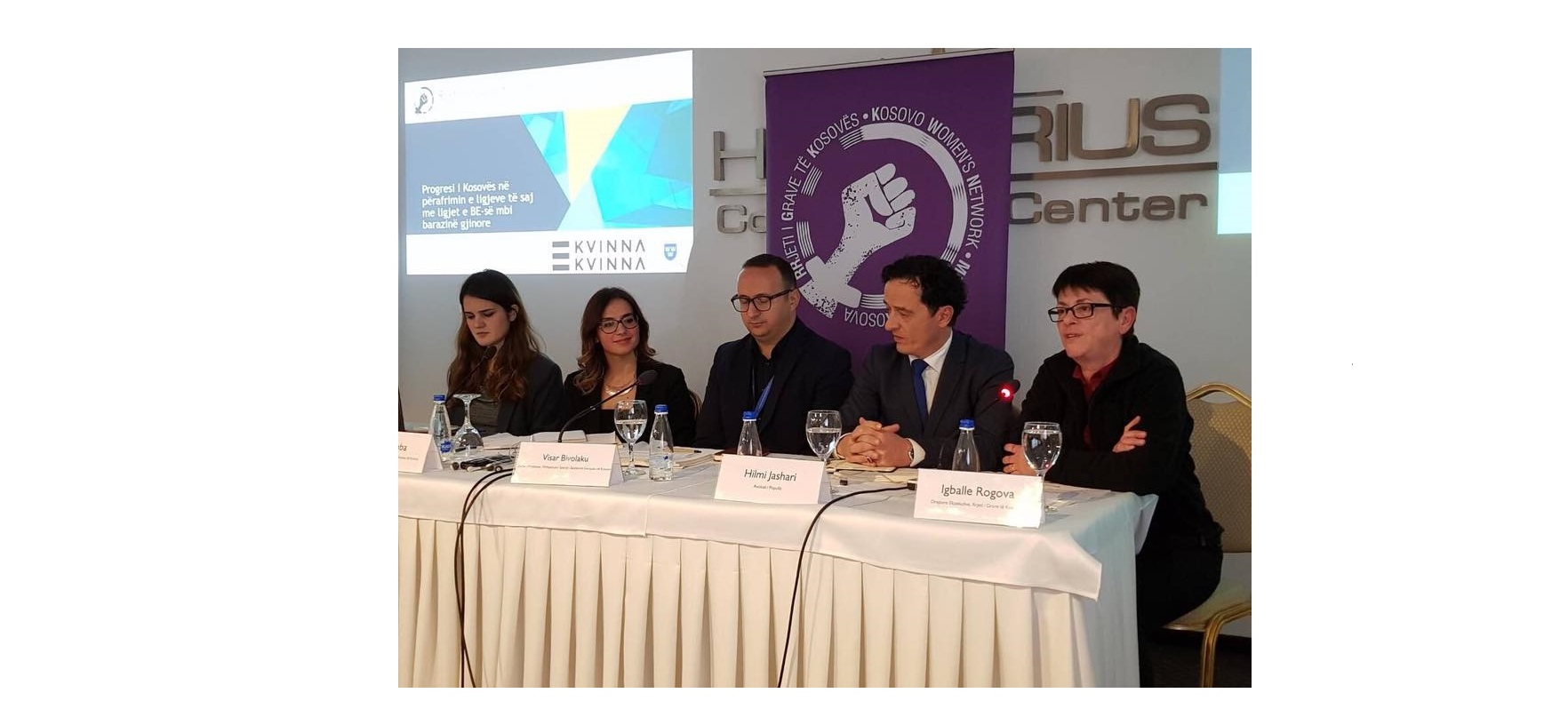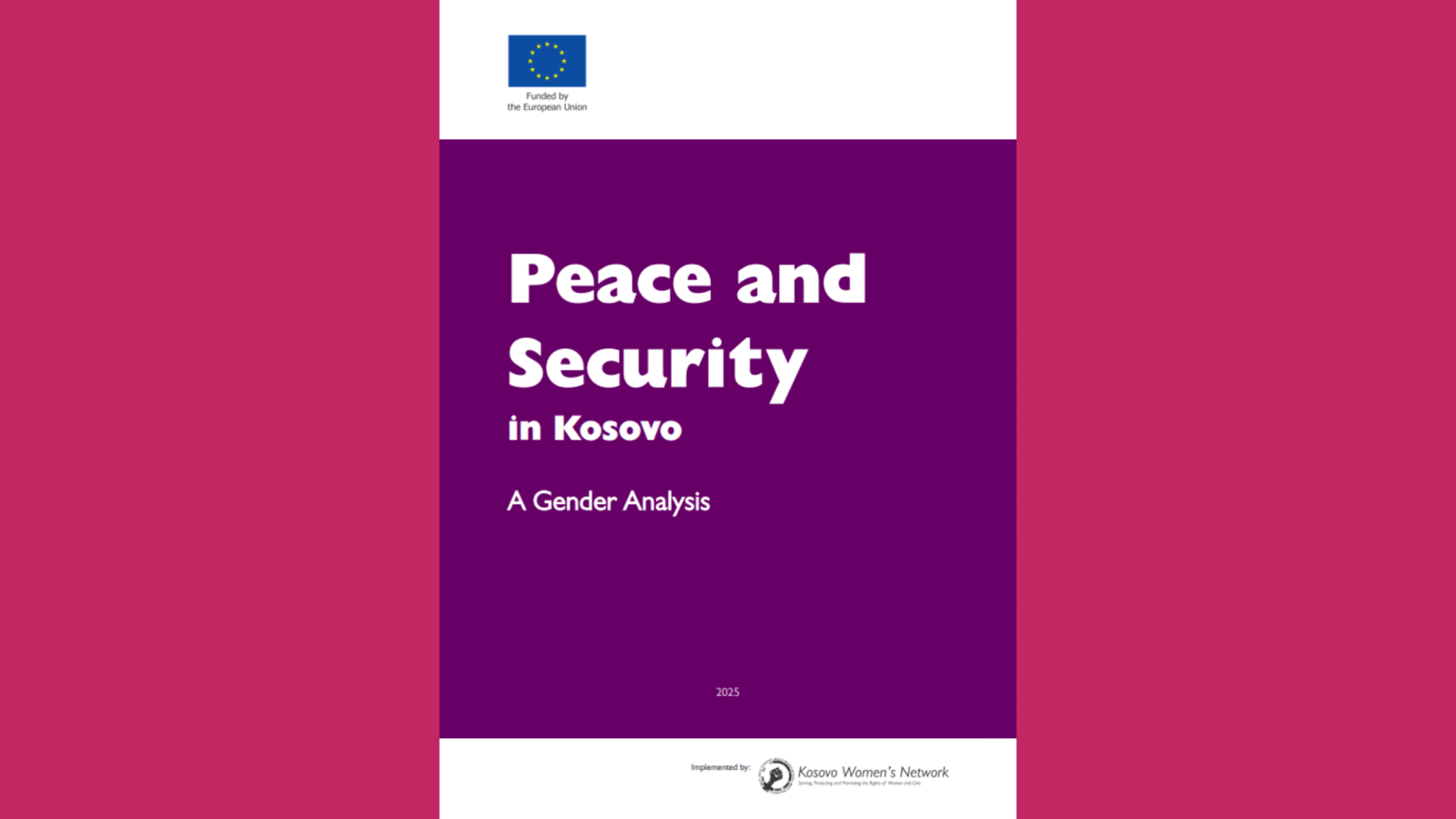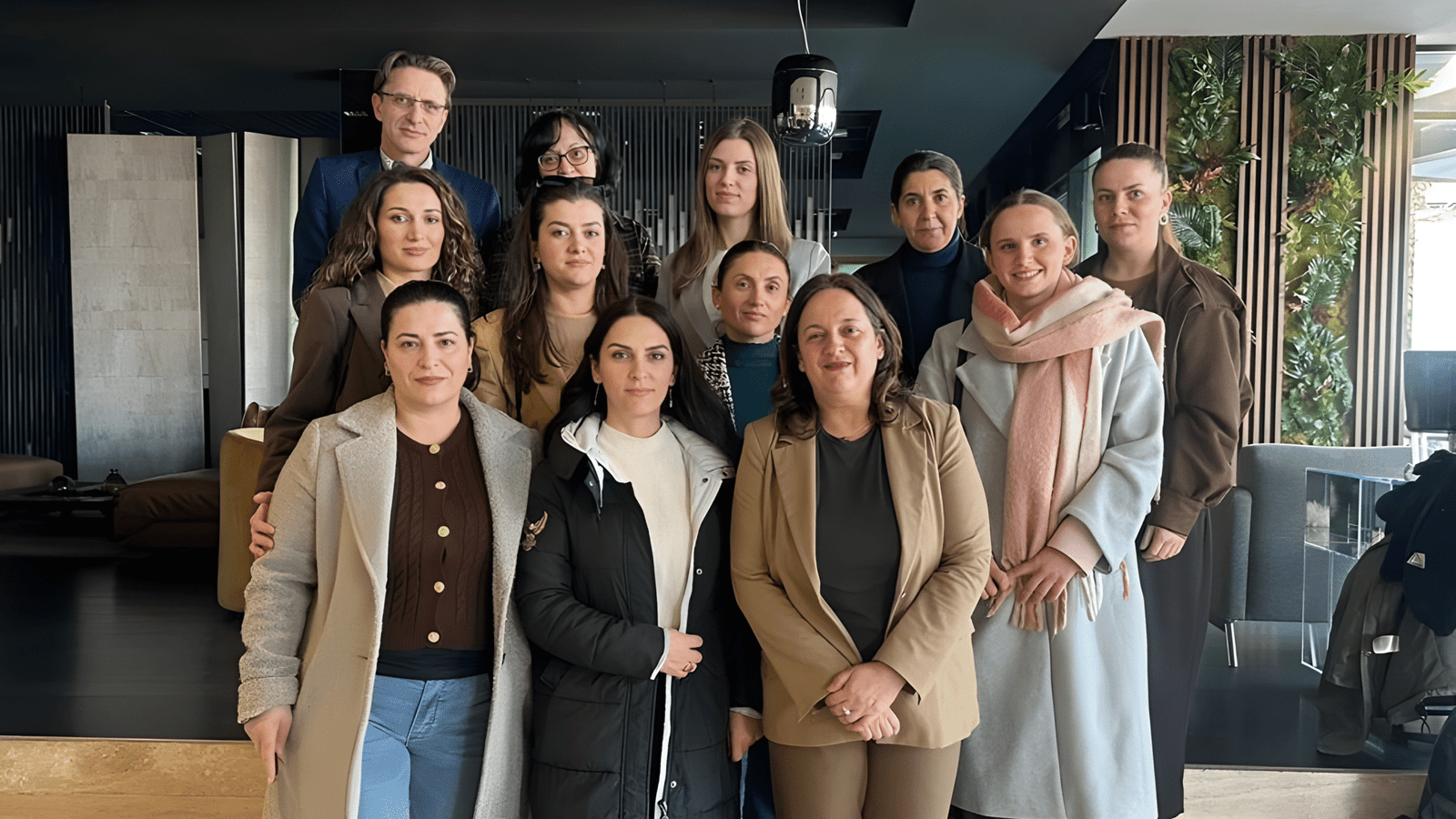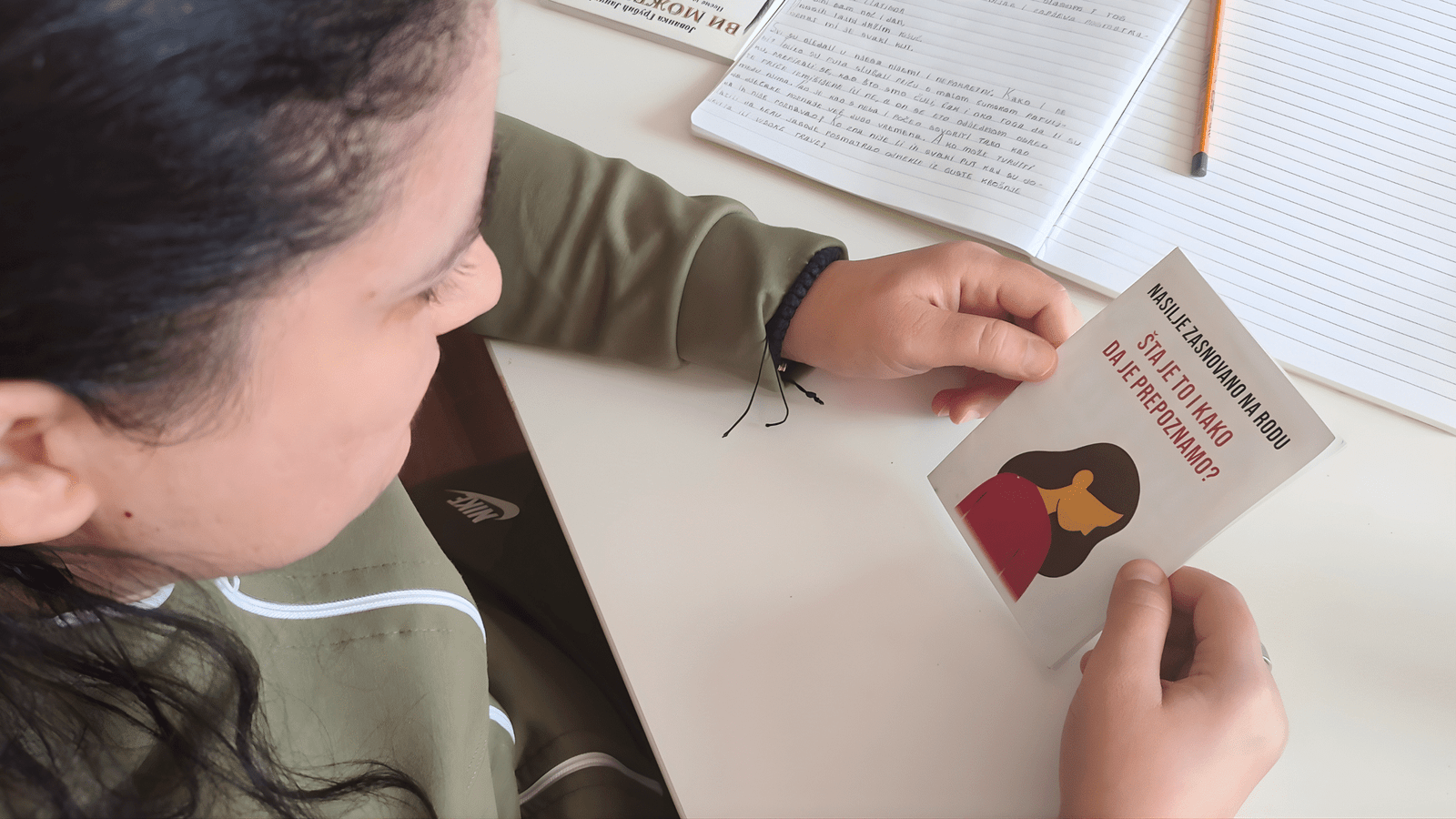On 8 Nov., the Kosovo Women’s Network (KWN) launched its latest policy paper, Kosovo’s Progress in Aligning Its Laws with the European Union Gender Equality Acquis. The paper was written by two renowned European lawyers and gender equality experts, Sylvia Cleff le Divellec and Katharina Miller, at KWN’s request.
In the context of several important, ongoing legal and policy reforms in Kosovo (e.g., related to the Labour Law), the paper assesses the extent to which Kosovo laws have been aligned with the European Union (EU) Gender Equality Acquis. The experts identify shortcomings and make recommendations for better harmonizing Kosovo law with the EU Gender Equality Acquis. Some of the key recommendations, presented today by KWN’s Legal Advisor Gresa Rrahmani, include:
- Kosovo needs to regularly collect data related to the gender pay gap in order to facilitate monitoring it;
- The Labour Law requires several amendments to meet EU standards;
- Specific definitions for sexual harassment and domestic violence should be incorporated in the Criminal Code; and
- The sanctions in the Law on Gender Equality are insufficiently strong for preventing violations of the Law and thus are not sufficiently dissuasive, as foreseen by the EU gender equality acquis.
- Implementation of the Law on Gender Equality remains weak and further steps as recommended in the Policy Paper should be taken to address this
During the event, the Ombudsperson, Hilmi Jashari, spoke about the many challenges affiliated with implementing Kosovo’s laws pertaining to gender equality and anti-discrimination. He elaborated on failures to implement the Law on Gender Equality article pertaining to equal representation of women and men at all levels of decision-making, particularly in the context of recent national and municipal elections. He committed to continuing collaboration with civil society towards better implementing these laws.
Visar Bivolaku, Policy Officer at the EU Special Representative in Kosovo emphasized that: “Equality among women and men is one of the basic values of the EU”. “Kosovo has a legal framework in line with international standards [but] it is not sufficiently implemented in practice,” he said. He voiced the EU’s commitment to continuing its work with the government and civil society, towards furthering gender equality in Kosovo.
Yllka Soba, Programme Officer from the Kvinna till Kvinna Foundation congratulated KWN for its “constructive criticisms and very specific recommendations”. “As the first report of its kind, it is an inspiration for other women’s organizations in the region who can take similar steps based on this example,” she said.
Following the presentation of findings and recommendations, panelists discussed the paper with members of the audience. The Ombudsperson provided clarifications on several issues, while noting several challenges with implementing the legal framework. For example, there are up to five different processes for addressing discrimination, which contributes to confusion and ineffective response in treating cases of discrimination, he said. He also stated that he was unsure as to whether there has ever been a case of Kosovo courts compensating victims. He highlighted the importance of sharing the recommendations with key stakeholders, including lawmakers.
In closing, KWN Executive Director Igballe Rogova said that KWN would share the paper with parliamentarians and other key actors, encouraging them to read the recommendations carefully and consider them in forthcoming legal reform processes.
This paper was written and published with support from the Kvinna till Kvinna Foundation, financed by the Government of Sweden.







